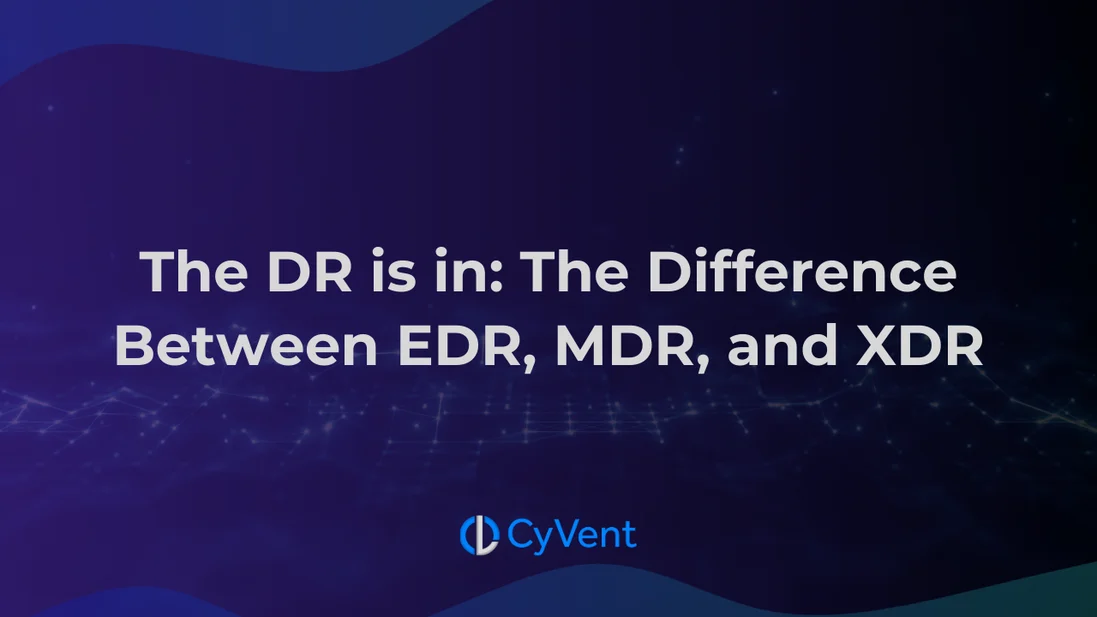Trusted Cybersecurity Advisory Services
Say Goodbye to Cybersecurity Confusion
CyVent helps you select the right cybersecurity solutions at the right price for your unique situation, without the need to invest endless time evaluating the ever-evolving options.
The solutions we recommend are trusted by thousands of enterprises and SMBs.
Does The Evaluation Process Feel Like Total Confusion?
Many cybersecurity leaders get to a point where they:
Invested significant time to determine which is the best path forward.
Want immediate human support when they have a cybersecurity question.
Are tired of listening to never-ending pitches trying to sell them the latest “next-gen” cyber tool.
Already invested major amounts in cybersecurity and are still concerned about enhancing their maturity levels.
Are frustrated with how fast cybersecurity is changing.
Find it difficult to quantify the consequences of an attack on their business.
Feel their team is overloaded to handle all the security risks.
How We Can Help
We offer tried-an-true end-to-end solutions that protect your business and are easy to deploy and manage.
As cybersecurity practitioners, our experts have held roles such as CIOs, CISOs, and COOs. So we understand cybersecurity from both a technology and user perspective.
Our unique offering leverages over 100 years of industry and functional expertise, plus honest advice to help guide you to the right solution for your unique situation.
We oversee the entire implementation process and act on our customers' behalf to make sure everything goes smoothly.
Protect Yourself From Cyber Criminals
MANAGED SERVICES

HAVEN
All-in-One Cybersecurity SaaS Solution
Evolve your cybersecurity. Automate operations. Empower your workforce. Haven provides all of the people, processes, and technology for intelligent network, endpoint, and email defense. It’s a complete cybersecurity solution for your business that combines world-renowned technologies such as SentinelOne, Palo Alto, Mimecast, and Symbol. Perfect for SMBs who want to outsource or complement their existing security installation.

Military-grade level security created to protect Department of Defense data.

Low, monthly, per-user subscription with no capital expenses or required hiring of staff.

U.S. based, 24/7/365 SOC with four levels of analyst teams to hunt and stop threats before they cause harm.

A highly-trained security team integrates, manages, and monitors the technology.
Silversky
Flexible. Scalable. Affordable
Get the most out of the technology you already have. Silversky can ingest information from 100’s of cybersecurity products instead of having to rip and replace your current security tools. It ensures your tech does what it’s supposed to do and is correctly configured to improve security gaps.


Transform your whole stack from CAPEX to OPEX.

Low, monthly, per-user subscription with no capital expenses or required hiring of staff.

24/7 full protection and monitoring with the option of signing up for SIEM on-demand and SOC on-demand.

Free 60-day trial.
Monitoring Solutions
Automation Solutions
Cybersecurity Training Services
What Does The Consultation Process Look Like?
1
CONSULT
The first step is to book a no-strings-attached discovery consultation call with one of our experts. This is in full confidence and helps us to establish where you are with your cybersecurity systems, the challenges you face, and where you want to be.
2
EVALUATE
Together, we identify the gaps and potential security implications for your business.
3
PLAN
We prepare our customized insights, and create a roadmap that explains exactly how to take your cybersecurity to the next level and align the best solutions for your budget.
4
PRESENT
Finally we schedule a demo to share the solutions we recommend.
Depending on your situation and objectives, the entire process can be completed in as little as an hour or spread over a few days.
Here’s Why Businesses Choose CyVent
See how we’ve helped dozens of organizations achieve the security and peace of mind they deserve.
Here’s Why Businesses Choose CyVent
Our experts are trusted veteran practitioners who achieved remarkable levels of success in their roles such as CIOs, CISOs, and COOs. Their unique blend of experience means they understand cybersecurity from both a technology perspective and as users, which provides the needed expertise to help guide you to the best solution for your unique situation.

Yuda Saydun, Founder
Founder and president of CyVent. Member of the Industry Advisory Board at the Institute of Data Science and Computing, and of the Cybersecurity Industry Leadership Team, past Chair, Technology Committee of the Miami-Dade Beacon Council. Throughout his career as Vice President, Senior Vice President, and Division President at American Express, Tech Data, ClimeCo, and Xerox, Yuda kick-started and scaled highly successful business units, launched dozens of new products, and oversaw cloud, data center, 24/7 monitoring, storage, backup, and other outsourced IT service offerings.

Roy Lowrance
PhD, Chief Data Scientist

Grady Johnston
PhD, Chief Data Scientist

Gary M. Goldfarb
Director

Greg Taffet
Sr. Advisor, IT transformation

Nancy Bianco
Director.

Selcuk Uluagac
Sr. Advisor, Network and IoT Security

Edmundo Llopis
Sr. Advisor, Chief Technology Officer

Charles Irizarry
Sr. Advisor, Distributed computing Security

Frank Sancho
Sr Advisor, Cloud and Security Automation
FAQ
If I hire CyVent, will I still need a cybersecurity team in my company?
CyVent’s services and level of involvement are tailored to our client’s needs. We can act as advisors working alongside your Board and your IT team, or provide full-service 24/7 expert managed cyber security-as-a-service out of US-based facilities.
Is CyVent’s portfolio restricted to products from partner companies?
We have access to and expertise in a broad array of proven technologies, and we constantly evaluate our portfolio to make sure we have the best offerings for SMEs. We’re particularly focused on a select number of top-of-the-line brands with whom we have developed deeper confidence and stronger relationships over the years.
How easy is it to deploy?
We work with our customers to design the best solution within their budget. We suggest a roadmap that starts with the most urgent aspects for immediate impact and improve their cyber maturity from there. Most of our solutions are priced on the number of endpoints, locations, networks, users, layers of security, etc. As an example, one of our top-of-the-line managed services is very affordable at just $11 per user and offers a 60-day free trial.
How much does it cost?
We work with our customers to design the best solution within their budget. We suggest a roadmap that starts with the most urgent aspects for immediate impact and improve their cyber maturity from there. Most of our solutions are priced on the number of endpoints, locations, networks, users, layers of security, etc. As an example, one of our top-of-the-line managed services is very affordable at just $11 per user and offers a 60-day free trial.
How do your services work?
Once you decide to work with us, we’ll schedule a brief kick-off session including subject matter experts for each of the selected technologies. We’ll introduce you to the assigned Project Manager and establish the roles and responsibilities. Then we outline the deployment plan, the interdependencies, expectations from each side, and the data that will be needed from you for a smooth deployment (for example, current IT stack, user lists, authorized parties, desired configurations, exclusions, etc). We will also agree on a calendar for regular cadence calls and expected go-live dates.
What do your services include?
CyVent offers some of the most advanced, data-driven defenses to security issues.
We offer managed services, including full-service 24/7 expert-managed cyber security-as-a-service out of US-based facilities. Monitoring solutions such as Third-party risk management, security posture assessments and insights, penetration testing, compliance, and compliance tracking. Automation software to pre-empt attacks including industrial controls, autonomous response, endpoint protection, next-gen network security, and email security. As well as state-of-the-art Cybersecurity training and phishing simulation services.
Where are you based?
We’re based in Miami, Florida, and Portola Valley, California. The majority of our clients are based in the US but many of our solutions can be delivered worldwide.
Why should we choose you over any other advisory firm?
You should use whoever is right for you. On our initial consultation call we’ll ask you some questions to determine your requirements and if our service is a good fit for you.
That being said here are some of the reasons that make us different:
- We advise on the right solution for your unique needs instead of promoting inflexible, cookie-cutter formulas that don’t fit your processes or priorities.
- We make sure you only pay for what you need.
- Our SaaS solutions usually do not require upfront investment.
- We rigorously vet the partners we work with and only work with the best, enterprise-grade SaaS solutions.
- We don’t sell you a product and then leave. Unlike some advisory firms, we oversee the entire deployment process and act on our customers’ behalf even after installation to make sure everything goes smoothly.
- We have over 100 years of cumulative industry experience and hands-on know-how we developed at world-class corporate environments and start-ups. Our team understands cybersecurity from both a technology perspective and as a user, so they have the needed expertise to help guide you to the best solution for your business’s needs.
Our Latest Insights
News, updates, and insights from our team

Partner with CyVent and Go From MSP to MSSP in a Flash
MSPs operating in today's advanced technology environment are no longer satisfied with simply facilitating software solutions for clients. They – rightfully – wish to play a proactive, integrated role... ...more
News
March 15, 2025•3 min read

Hitting the Books: AI Education for Lifelong Learners
Just when I thought it might be time to relax and coast a little as I moved to California, I chose to dive deeper into AI, enrolling in some Stanford classes that promise to stretch my understanding b... ...more
News
March 15, 2025•8 min read

The DR is in: The Difference Between EDR, MDR, and XDR
In a way, our ever-growing list of security-related acronyms — often the source of jokes and the bane of many a security practitioner's existence — is actually perfect for technologists. In tech, the ... ...more
News
March 15, 2025•9 min read

CyVent and the CyVent Logo are trademarks of CyVent. All other product names, logos, and brands are property of their respective owners, and used in this website for identification purposes only.
Please note: This content is made available for informational purposes only and is not meant to provide specific advice toward specific business-related activities. Use of this content doesn’t create a client relationship between you, CyVent, and any authors associated with the CyVent corporate name. This content should not be used as a substitute for security advice given by specialized professionals.
Phone: +1 (305) 299-1188
Email: [email protected]
- 850 Los Trancos Road
Portola Valley, CA 94028
- 1395 Brickell Avenue, Suite 800
Miami, FL 33129






















